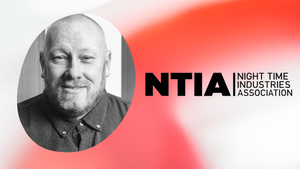As we head into 2024, CMU recently sat down with the bosses of many of the music industry’s trade organisations to talk about their work, the key challenges faced by their members, and what to expect in the year ahead. Today, CEO of the Night Time Industries Association Michael Kill.
Explore the full series of interviews
You do a lot of work with government - what were some key wins over the last year?
There were some significant achievements in 2023. We forged a strategic partnership with the Department For Work And Pensions through our training and employability programme for night time economy workers.
We represented the industry and delivered compelling evidence at the Home Affairs Select Committee and in the House Of Lords in response to the new Terrorism Bill, Licensing Act review and addressing spiking concerns.
We also took a proactive stance by challenging the Home Office on the issue of drug testing at festivals, whilst collaborating with the industry in an effort to eliminate harms in the late-night economy related to nitrous oxide.
And we established a platform and support system through the Department For Culture, Media And Sport for electronic music as an independent grassroots industry through a quarterly roundtable.
Beyond the lobbying work, what other campaigns and projects kept you busy in 2023?
We introduced the Listen For Life Campaign in collaboration with the World Health Organization, aiming to mitigate hearing loss in our industry through increased awareness, education and protective measures. With the accreditation set to be unveiled this year, it will establish the benchmark for safeguarding both staff and customers until 2024.
We took on the task of challenging the prevailing norms in the private security sector, which will bring the current tax disparity inline and eradicate unscrupulous operators from the market, whilst considering the counter terrorism challenges around the lack of control.
Simultaneously, a concerted effort was made to expand opportunities for artists to receive fair compensation for their music played in public spaces. This initiative was facilitated through a novel collaboration with DJ Monitor and ATC, shedding light on the music intelligence movement.
And finally, we have also been fundamental in the appointment of a Night Time Economy Advisor for the West Midlands, and will continue to work with several cities that are set to make similar appointments in 2024.
What are the biggest challenges for you and your members?
Our members have faced huge challenges coming out of the pandemic into a cost of living crisis, and finding remedies to those challenges while also recognising that the government was willing to allow businesses to be lost was a challenge for the organisation - the government’s position didn't sit right with me in all honesty!
There has also been a change in narrative in terms of the communication between government and industry over the course of the last year. The communication is, without a doubt, one way, and the political turmoil has not helped build trust and confidence.
Keeping the faith within the nightlife community, which we had established during the pandemic, has possibly been the toughest task. As our members have faced more and more challenges, and support was withdrawn, there is a demeanour about the sector that feels undervalued and not heard.
What will be key projects for you in the year ahead?
We are hosting the biggest night time economy summit in Europe in Manchester in February, with an extremely ambitious line-up across four stages, with panellists and speakers from across the nighttime industry including creatives and policy makers.
This is followed by our Ambassadors Of The Night Awards being held at the Hippodrome Casino in London, which will celebrate the amazing work that our industry does across the UK.
We have several exciting projects with Defected Records and some of the amazing electronic music labels that we have in the UK, and an extremely big project which will be a pinnacle event in May with the National Gallery in Trafalgar Square.
We are also expanding our professional development programme and working with partners such as Skiddle to develop grassroots promoters across the UK, giving them a platform to develop and learn from key mentors. And we are developing our ambassadorial programme, which will establish over 100 key representatives in major cities across the country, as we develop UK-wide and devolved government commissions and business category support for the sector.
The Listen For Life accreditation programme and charter will launch in March in conjunction with World Hearing Day, and we will work on the expansion of the NTIA into other territories following an amazing trip to Colombia to discuss establishing the licensing legislation with Colombian Congress, and other South American regions.
We also have an exciting sustainability project and funding solution on the horizon for the second half of this year which could be game changing!



